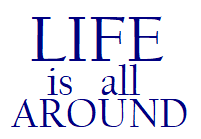Have you ever wondered why we keep making the same mistakes? Is it because the situations demand similar actions? Is it due to our incompetence? Or is it just a matter of bad luck? The answer may not be as simple as that.
However, one thing is certain: if people learned history, they could behave more wisely and avoid inappropriate behavior or decisions. One can take many lessons by simply reading history. It can be a tool to enhance their journey of life.
The topic of “History” is the last section in the CONNECT pillar. Here, I aim to examine history through the blog’s viewpoint: “Life is all Around”. Or in other words, I want to explore how lessons from history can help us connect with both people and life.
More specifically, I plan to discuss the following matters:
- Why history matters
- Why history repeats itself
- The Evolution of Man: a summary
- History teaches
- Human history in a nutshell
- The burden of arbitrary borders: the 19th century
- The industrial revolution: what’s Next?
- Civil wars in history: a pattern
- Colonialism: a dark part of our history
- The Origins of Nationalism
- Homo universalis: a 16th-century inspiration
- The age of “enlightenment”
- The Curse of Imperialism
There will be a new post every first Sunday of the month at 10 am UTC.
Feel free to get in touch and don’t forget: Life is all around. And there’s lots of it in history.

